TU Munich expands Imperial partnership in AI, healthcare, robotics and beyond
The Technical University of Munich (TUM) and Imperial have launched a series of new research and education programmes.
It is imperative that the UK remains in a research union with Europe. Professor Alice Gast President
The news comes after Europe’s two leading technical universities signed a ‘flagship partnership’ in October 2018, and as the President-elect of TUM, Professor Thomas Hofmann, leads an academic delegation to Imperial this week.
During the visit, Professor Hofmann and Imperial President Alice Gast announced a new research programme in AI-Healthcare-Robotics underpinned by a collaborative PhD programme for 10 students, who will have access to world-leading academic supervisors and state-of-the art facilities at both institutions.
The fully-funded PhD scholars will work across artificial intelligence, healthcare and robotics - fields where both Imperial and TUM have taken a global lead in research, innovation and breaking down disciplinary boundaries.
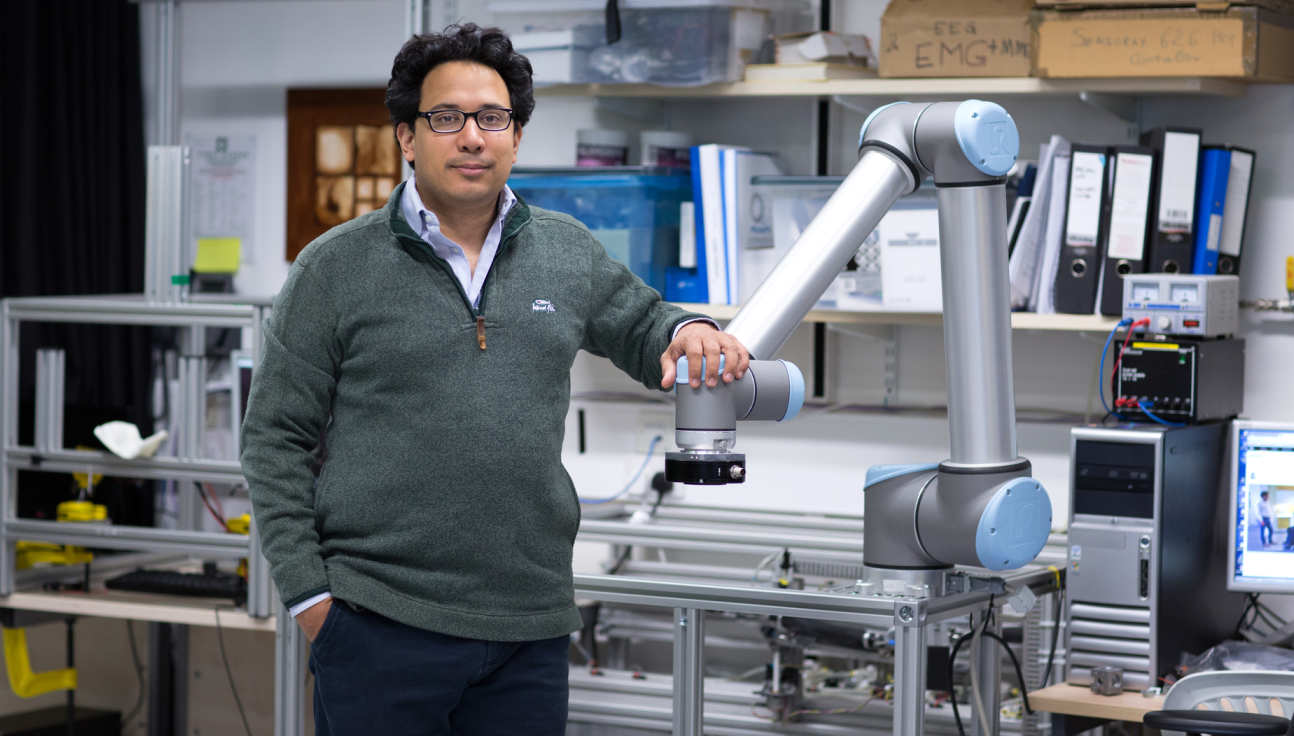 The programme, involving 20 academics from both institutions, will be led by Professor Sami Haddadin, Chair of Robotics Science and Systems Intelligence at TUM, and Dr Aldo Faisal, Reader in Neurotechnology at Imperial, two of the world’s most renowned experts in their fields.
The programme, involving 20 academics from both institutions, will be led by Professor Sami Haddadin, Chair of Robotics Science and Systems Intelligence at TUM, and Dr Aldo Faisal, Reader in Neurotechnology at Imperial, two of the world’s most renowned experts in their fields.
Dr Faisal said: “This is more than just an exchange: it’s a programme.”
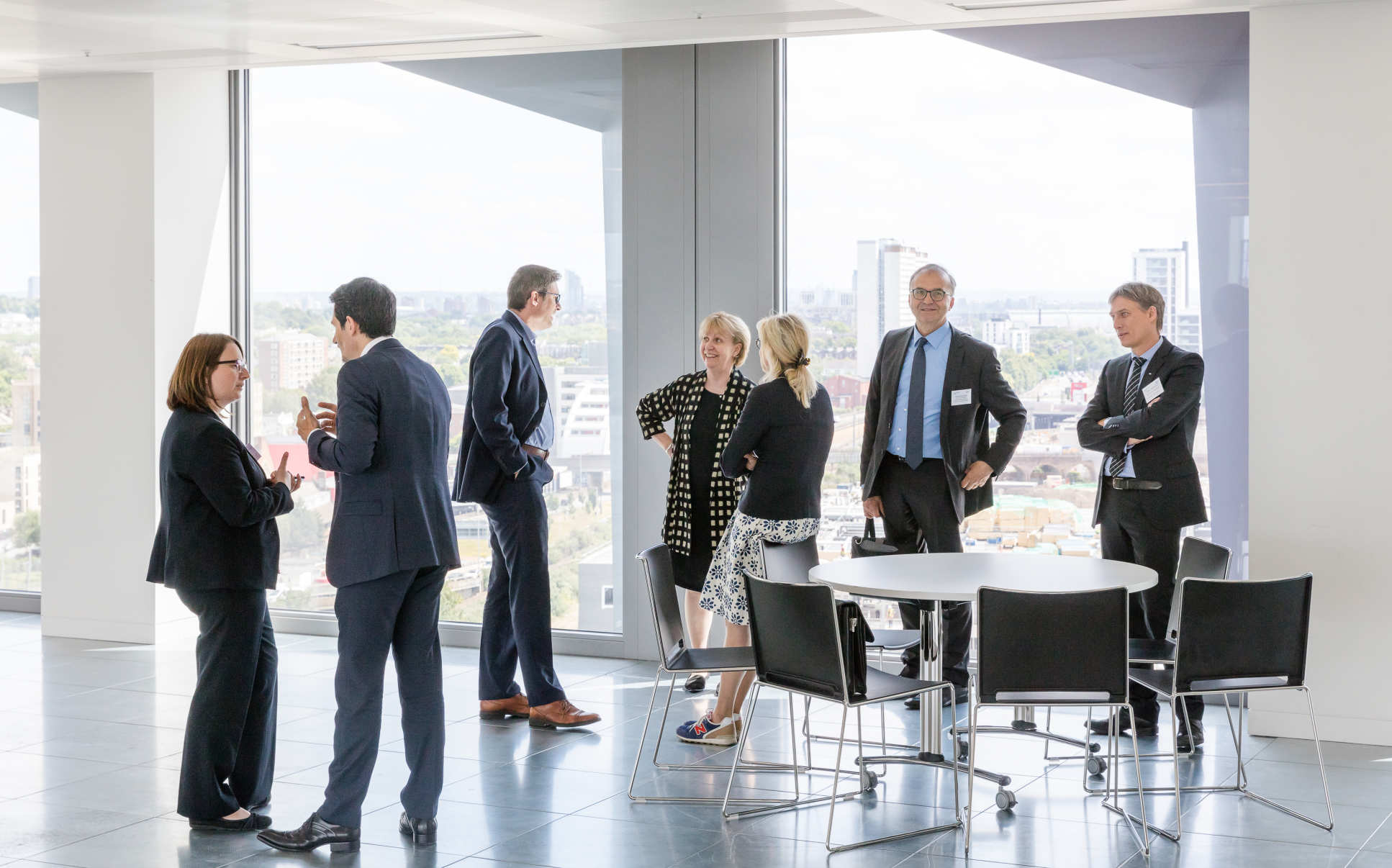
Professors Gast and Hofmann also announced that the Imperial-TUM Seed Fund has invested in its first 20 joint research projects between the two universities, supporting early-stage work into medical ‘trojan horses’, bespoke helmets, windfarm efficiency and scores more areas of exploratory research.
Professor Hofmann said the new seed fund’s first projects epitomised the ways in which “Imperial and TUM are natural partners, sister universities with overlapping profiles.”
Science diplomats
To mark the visit, Professors Gast and Hofmann held a special event at the Goethe-Institut on Exhibition Road titled ‘Science, diplomacy and our European future’.
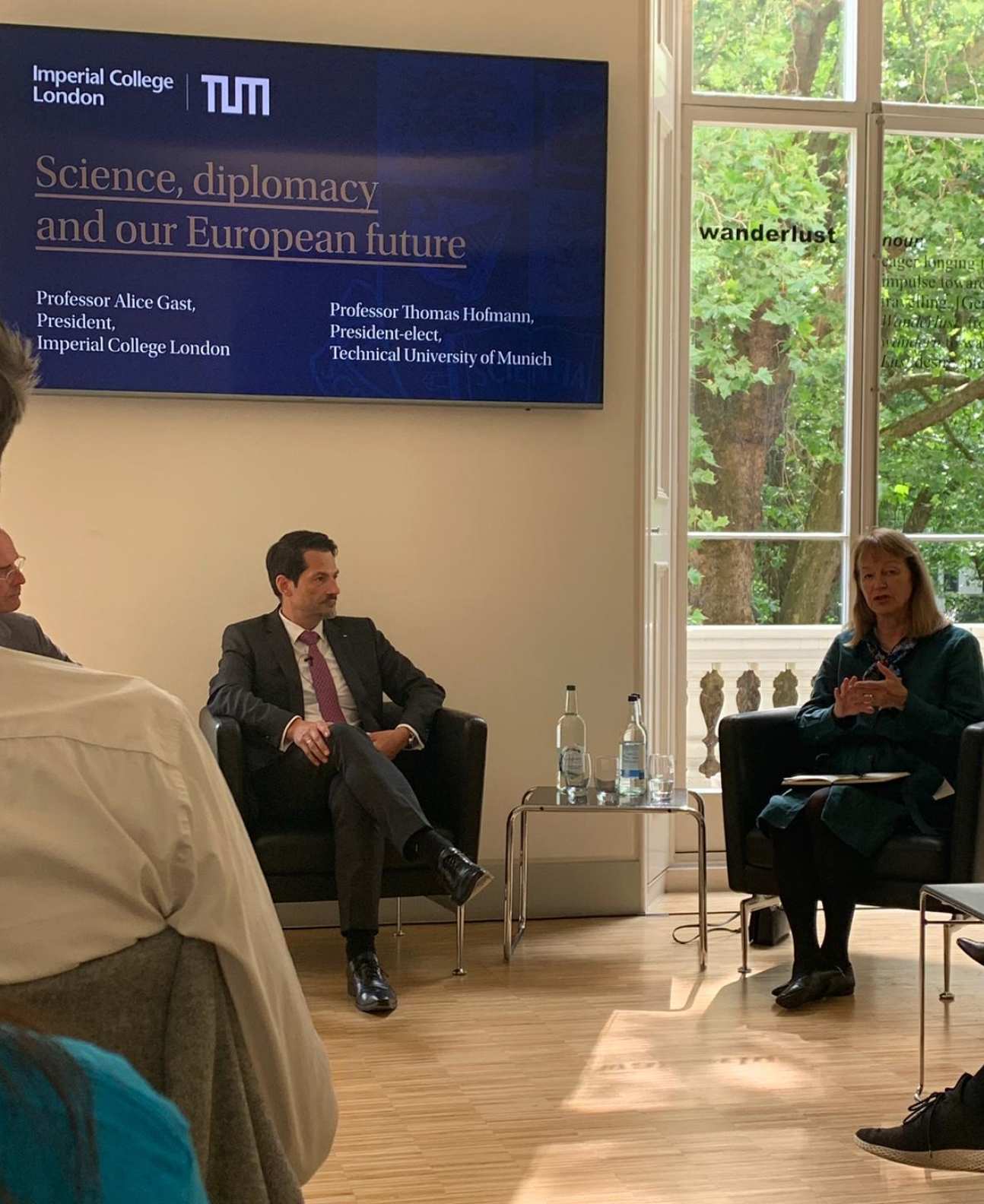 Introduced by Dr Georgia Herlt of the Goethe-Institut and moderated by DAAD London Director Dr Georg Krawietz, President Gast, who once studied at the Goethe-Institut in Munich, praised the network’s “tremendous legacy and service to the world” in language and culture.
Introduced by Dr Georgia Herlt of the Goethe-Institut and moderated by DAAD London Director Dr Georg Krawietz, President Gast, who once studied at the Goethe-Institut in Munich, praised the network’s “tremendous legacy and service to the world” in language and culture.
Professors Gast and Hofmann used the event to emphasise how both Imperial and TUM are determined to grow their collaborations over the coming years, whatever form Brexit may take.
Talking of Imperial and TUM’s partnership, Professor Hofmann said: “It’s wise and clever to bring the strong institutions together and create synergies.”
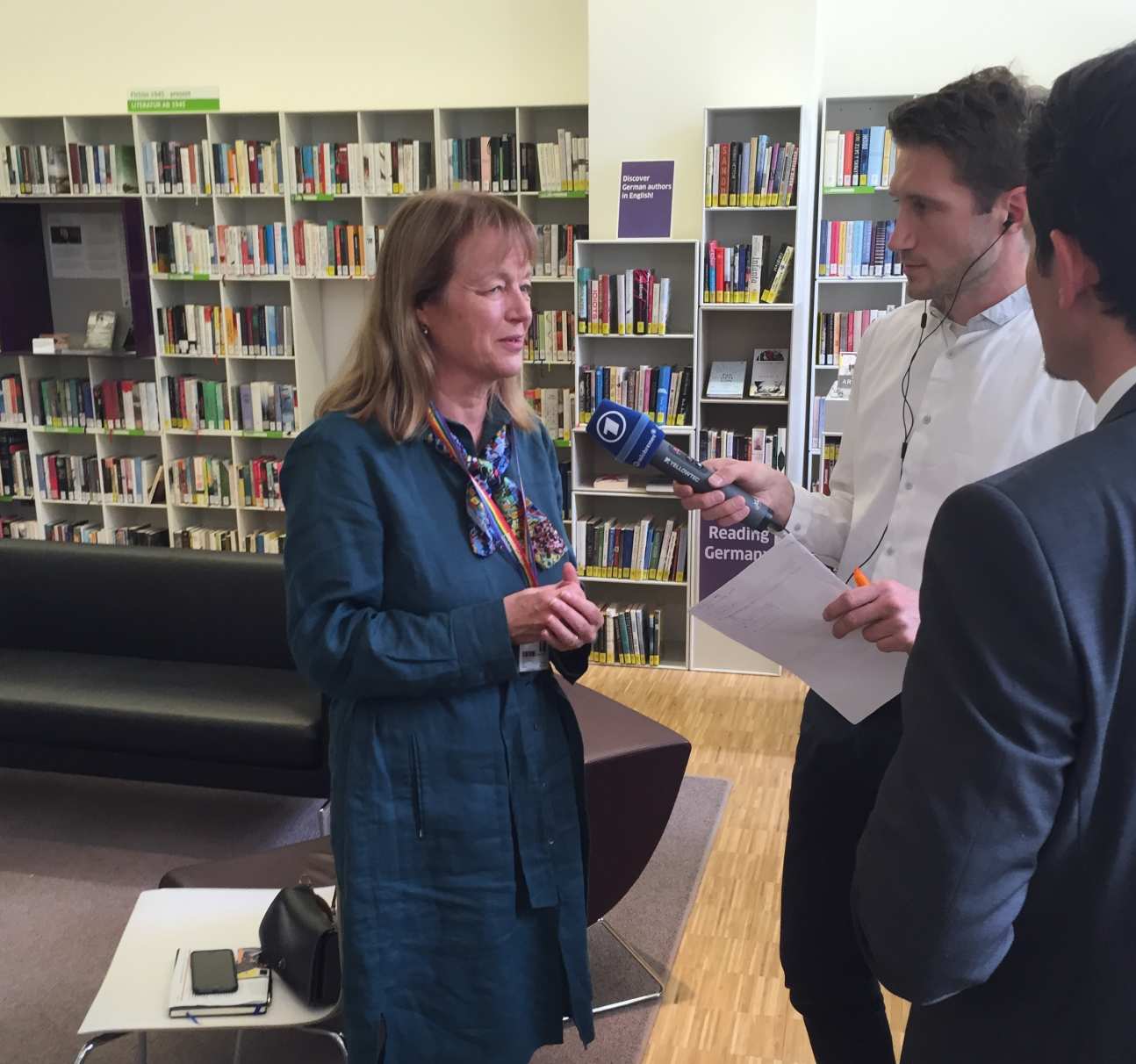 On innovation and entrepreneurship, Professor Hofmann said: “When we compare Europe to the United States, we have the same potential as the US, but we’re underusing it. We need to grow this potential together. How can universities create a more supportive environment for startups and help them to stay in Europe?”
On innovation and entrepreneurship, Professor Hofmann said: “When we compare Europe to the United States, we have the same potential as the US, but we’re underusing it. We need to grow this potential together. How can universities create a more supportive environment for startups and help them to stay in Europe?”
President Gast hailed the Imperial-TUM partnership as “a grassroots desire to work together”, rather than being directed from the top, which could now lead to joint academic appointments, new research collaborations and ways to integrate education and enterprise initiatives.
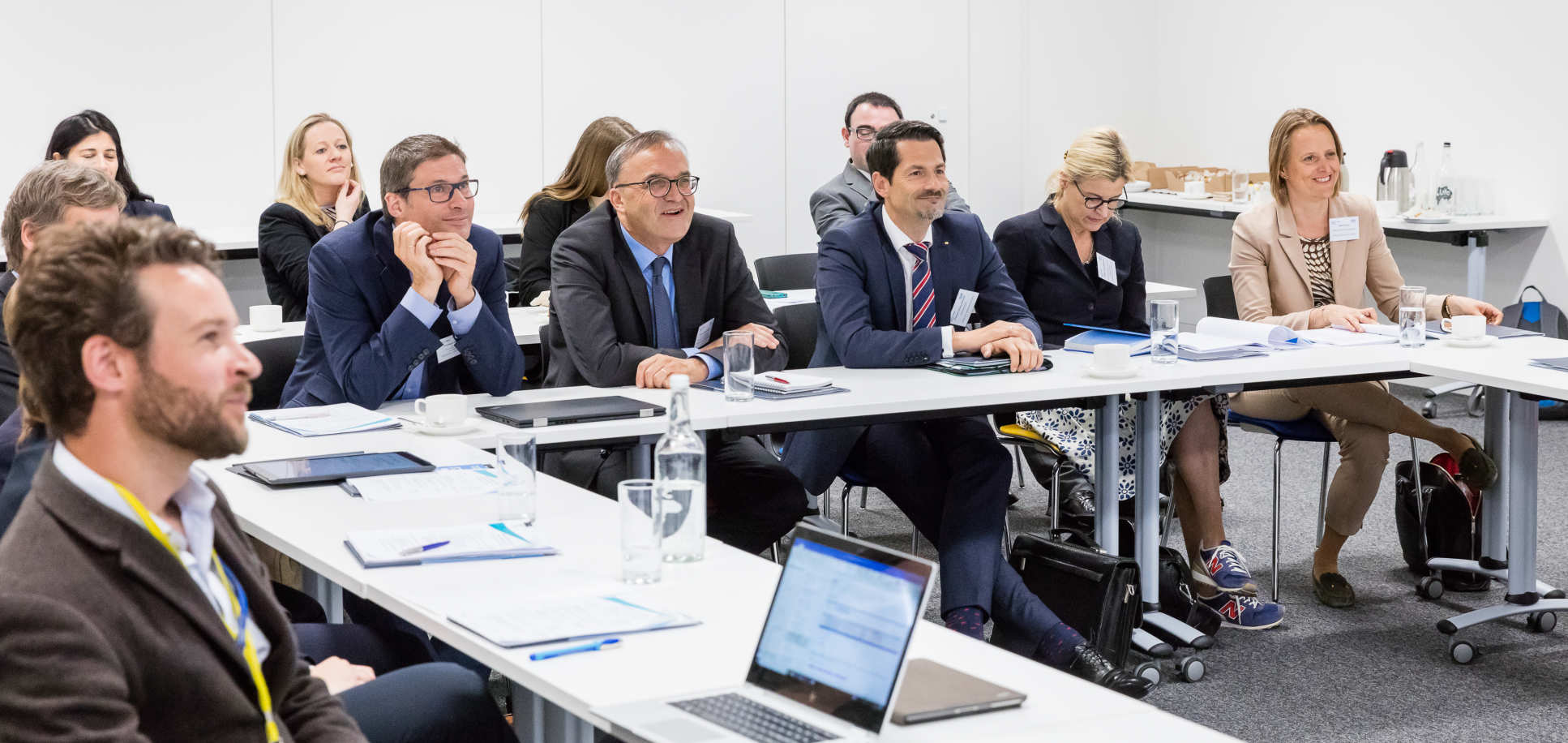
Science without frontiers
President Gast underlined Imperial’s commitment to European collaboration: “It is imperative that the UK remains in a research union with Europe.”
She used a German word – “Gestalt” – to describe EU research as “greater than the sum of its parts”, as Horizon 2020 and Horizon Europe “is not just about money and funding, but the research and collaboration value that comes from it.”
Professor Hofmann backed Imperial’s position on Brexit. He said that cutting the UK from Horizon Europe would be “a disaster for Europe and a disaster for science.”
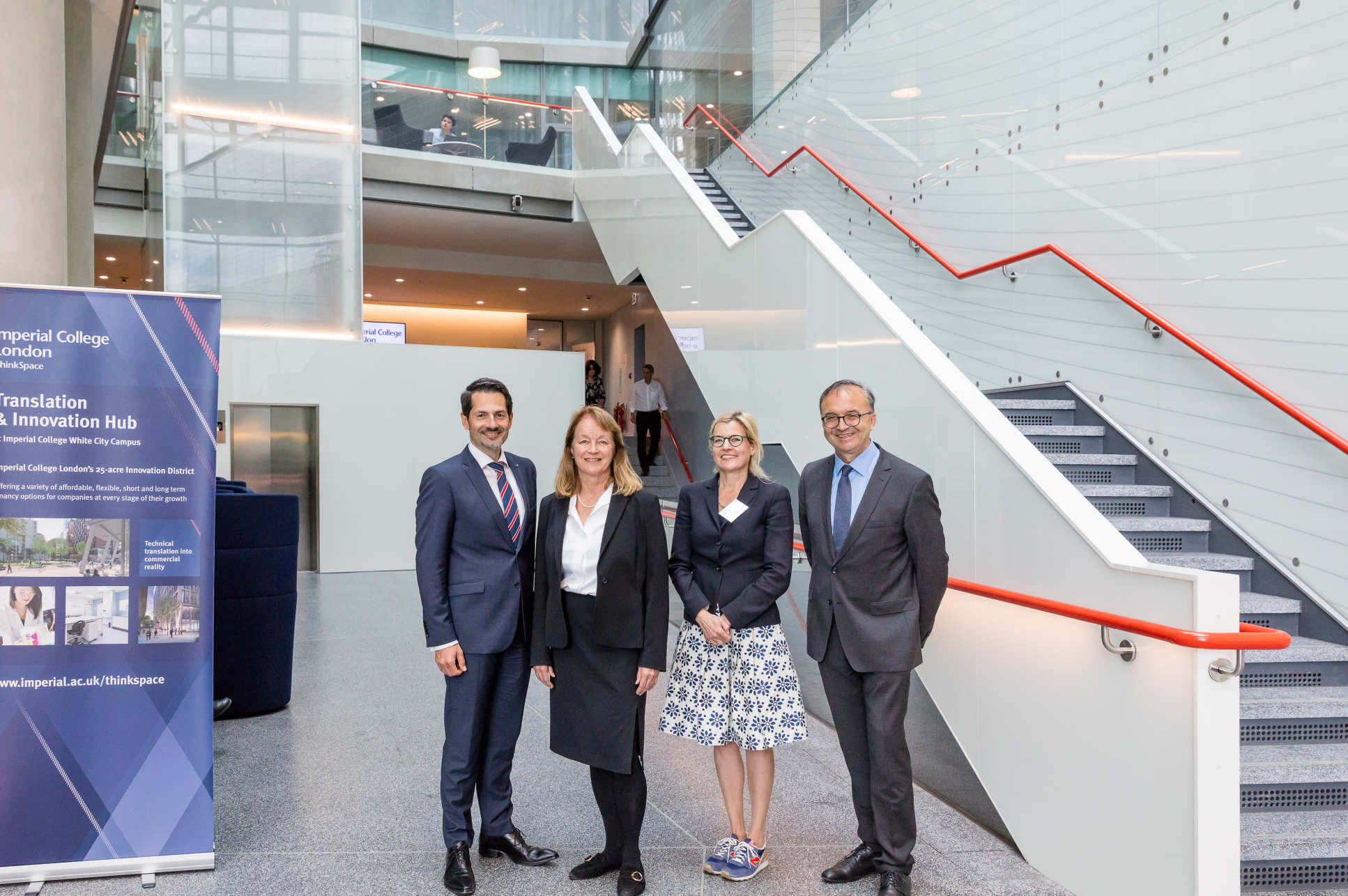
On global challenges to academic collaboration, Professor Hofmann said: “Science should not know any frontiers. Building walls around ourselves would only limit us. I would oppose any artificial barriers.”
Global competitiveness
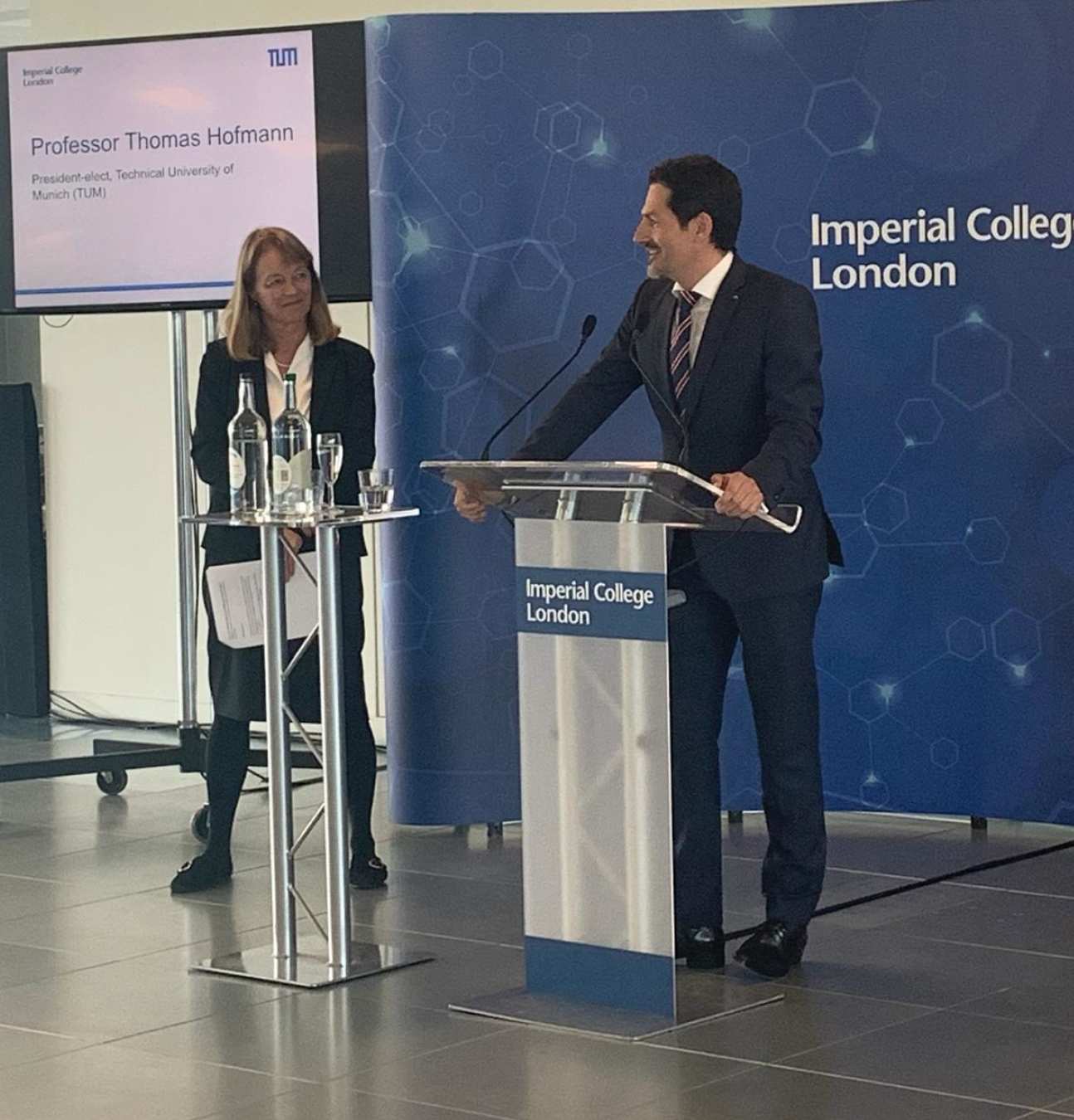 Professor Hofmann said: “We are made for one another because we are so similar in our portfolio and our ambition.” He added that it is “impressive” how Imperial is bringing together different disciplines at White City. He said: “this is crucial if we, as technical universities, are to remain successful” in this era of global competitiveness.
Professor Hofmann said: “We are made for one another because we are so similar in our portfolio and our ambition.” He added that it is “impressive” how Imperial is bringing together different disciplines at White City. He said: “this is crucial if we, as technical universities, are to remain successful” in this era of global competitiveness.
The TUM delegation, which included Senior Vice President for International Affairs, Professor Juliane Winkelmann, and Senior Vice President for Academic Affairs, Professor Gerhard Mueller, as well as multiple researchers, toured Imperial’s White City Campus, where they heard about White City’s thriving innovation ecosystem from Provost Ian Walmsley, Vice President (International) Maggie Dallman, and Director of Enterprise Simon Hepworth.
Professor Anthony Bull gave an early look at the Michael Uren Biomedical Engineering Research Hub, due to open in 2020, which will enable over 500 engineers, clinicians and scientists to develop new and affordable medical technologies from new ways to cure dementia to creating bionic limbs.
Vice Provost (Research and Enterprise) Nick Jennings and Head of Incubation at the Imperial White City Incubator Graham Hewson showcased the I-Hub, while chemistry Professors Alan Armstrong and Oscar Ces demonstrated the recently-opened Molecular Sciences Research Hub.
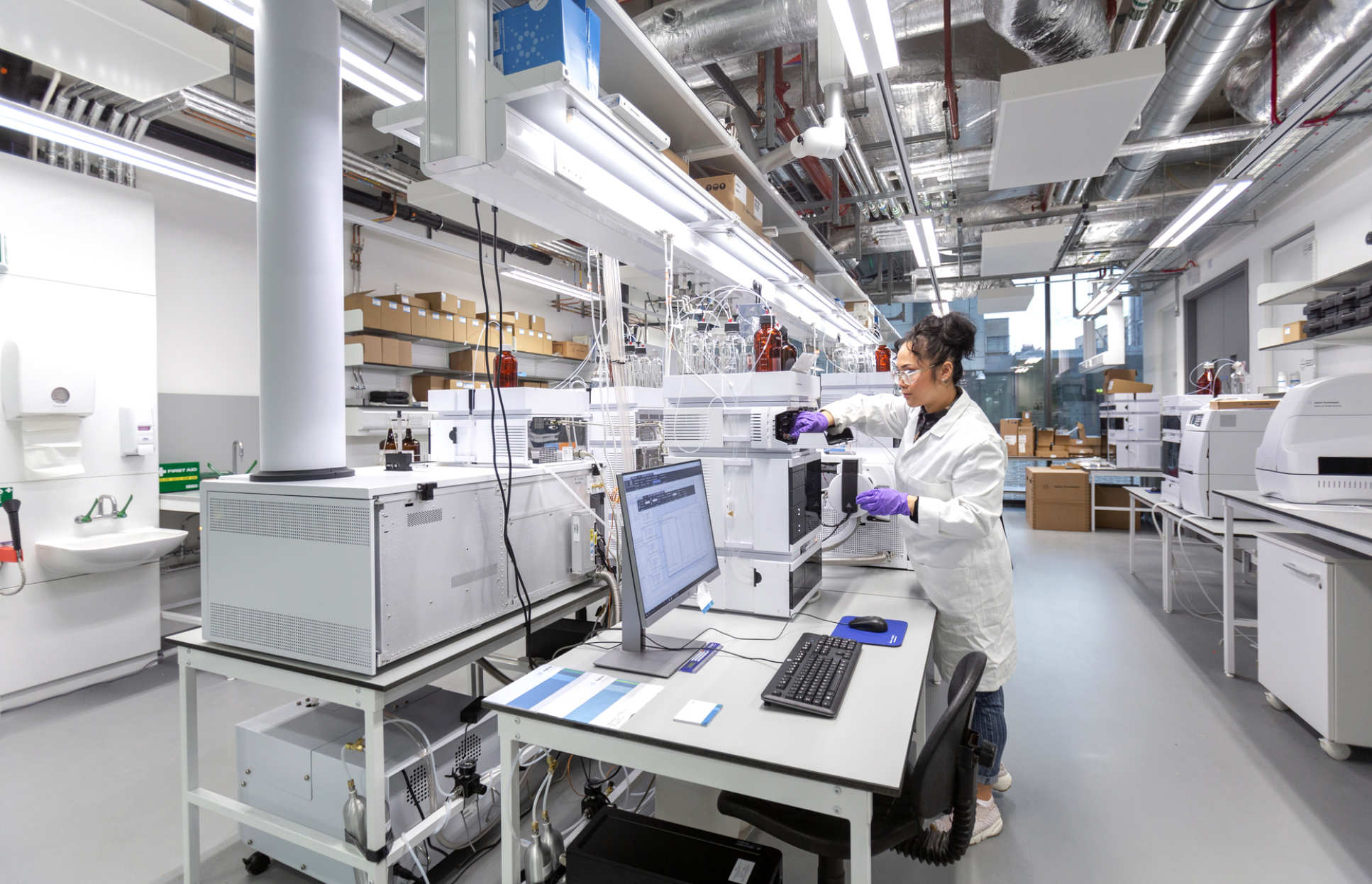
In the Invention Rooms, Professor Maggie Dallman explained how Imperial is creating a unique space for community innovation through the Reach Out Makerspace, Advanced Hackspace and Interaction Zone.
New ways to teach and learn
Imperial’s Vice-Provost (Education) Professor Simone Buitendijk welcomed a group led by her TUM counterpart Professor Gerhard Mueller where they explored collaborations in entrepreneurship, digital learning and education research – ways in which they can “educate future professionals for future challenges.”
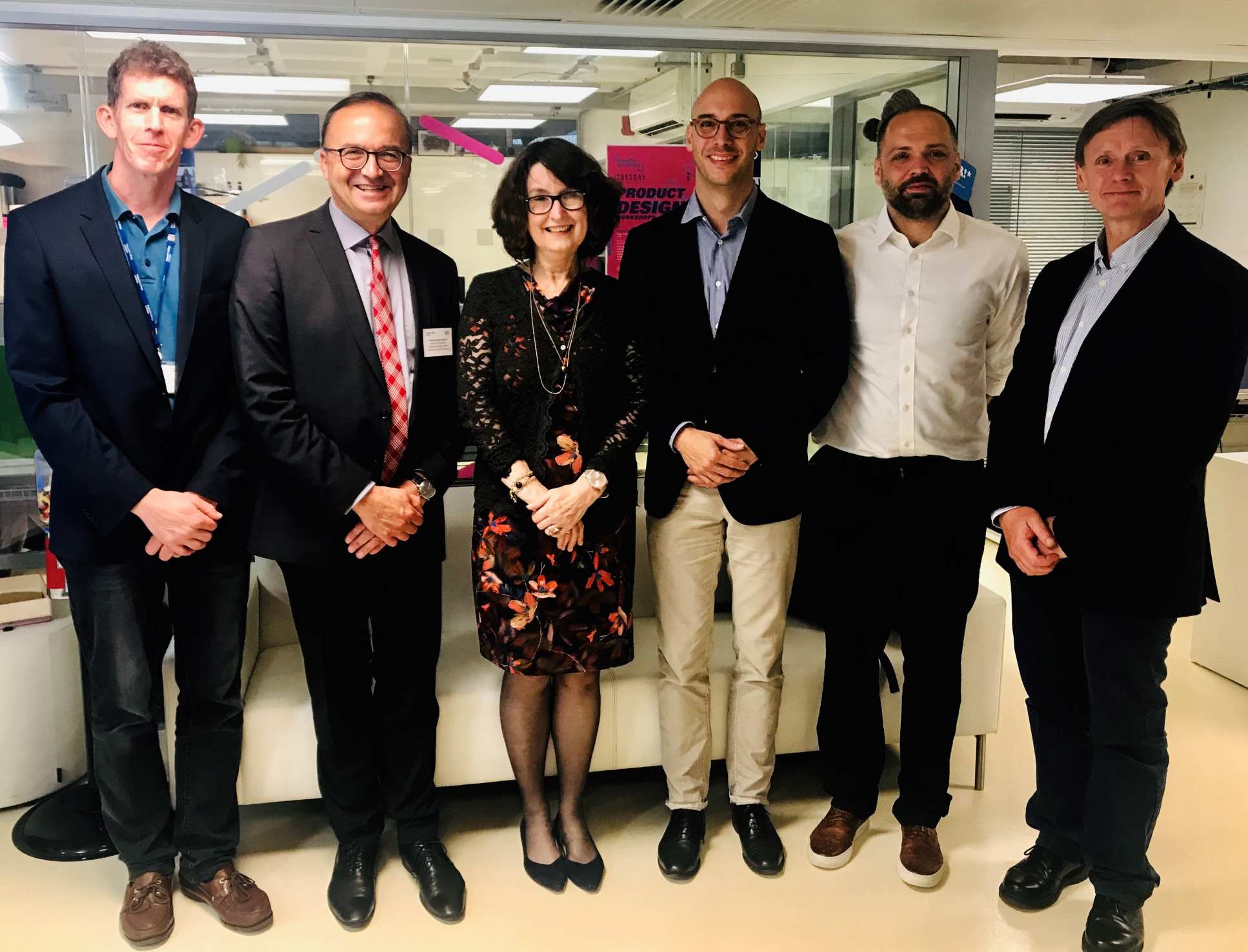
This follows Professor Buitendijk’s visit with Imperial vice-deans to Munich in April, where the two universities shared educational programme inventories, identified areas for collaboration and agreed to set up a series of Imperial-TUM working groups on student enterprise, interdisciplinary projects, blended learning (especially in AI and data science), and Masters and PhD work in education research.
Article text (excluding photos or graphics) © Imperial College London.
Photos and graphics subject to third party copyright used with permission or © Imperial College London.
Reporter
Andrew Scheuber
Communications Division